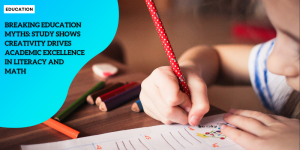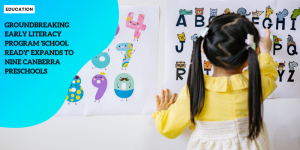7 Ways to Help Your Child Beat the Summer Slide During Holidays

Anúncios
Understanding the Summer Slide
Defining the ‘Summer Slide’ and Its Impact
The ‘summer slide’ refers to the tendency for students to lose some of the academic skills and knowledge they gained during the school year over the summer break.
This phenomenon, well-documented through various studies, reveals that children can lose up to two months of math skills and reading achievement if not engaging in educational activities during the summer.
Anúncios
The result?
Students start the new school year playing catch-up, which can significantly impact their academic performance and confidence.
Anúncios
Importance of Maintaining Academic Skills During Holidays
Maintaining academic skills during holidays is crucial for several reasons.
Firstly, continuous learning helps to reinforce and consolidate knowledge acquired during the school year.
Without regular practice, children may forget important concepts, making it harder to transition back to school smoothly.
Moreover, maintaining academic momentum keeps students intellectually engaged, preparing them for the challenges of the upcoming school year.
By involving children in structured educational activities during the break, we can mitigate the effects of the summer slide and ensure they return to school ready to hit the ground running.
 Your child will return to school ready
Your child will return to school ready
Early Preparation for the New School Year
Early preparation for the new school year is essential.
Students who start the year with strong foundational skills and confidence are more likely to succeed academically.
Early preparation might include reviewing last year’s materials, previewing the upcoming curriculum, or engaging in summer tutoring programs.
This preparation not only familiarizes students with what lies ahead but also increases their confidence, making the new school year less daunting.
For example, if a child is about to enter a grade where algebra will be introduced, familiarizing them with basic algebraic concepts can make the transition smoother and the subject less intimidating.
This proactive approach not only enhances performance but also fosters a positive attitude toward learning.
By understanding the summer slide and taking steps to prevent it, parents and educators can ensure students stay on track academically, returning to school ready to learn and succeed.
With attention to maintaining academic skills, summer tutoring, and early preparation, the negative impacts of the summer slide can be significantly reduced.
Now that we have a clear understanding of the summer slide and why it’s important to address it, let’s explore the ways tutoring during the holidays can offer a wide range of benefits.
Benefits of Holiday Tutoring
Holiday tutoring offers a range of benefits for students, ensuring that they remain academically engaged during breaks.
This focused approach can counter the effects of the ‘summer slide,’ keeping students on track and well-prepared for the upcoming school year.
Here’s why holiday tutoring can make a significant difference:
Prevents Learning Loss and Maintains Academic Momentum
The ‘summer slide’ refers to the loss of academic skills students often experience during extended breaks.
By participating in tutoring sessions over the holidays, students can reinforce what they’ve previously learned and stay sharp.
This helps prevent gaps in knowledge and ensures that academic momentum is maintained.
As a result, students can enter the new school year feeling confident and ready to tackle new challenges.
Familiarization with Upcoming Curriculum
One of the key advantages of holiday tutoring is the opportunity for students to get a head start on the subjects and topics they’ll encounter in the new school year.
By becoming familiar with the upcoming curriculum, students can move into the new term with a stronger foundation and less anxiety.
Being ahead of the curve in terms of understanding new material can significantly boost a student’s confidence and performance when the new school year begins.
Personalized Attention to Individual Learning Needs
Holiday tutoring offers personalized instruction tailored to each student’s unique learning style and pace.
Unlike the one-size-fits-all approach often seen in traditional classroom settings, tutoring can adapt to the individual needs of each student.
This personalized attention helps to address specific areas where the student may need improvement, whether it’s mastering complex math problems or developing better reading comprehension skills.
Personalized tutoring ensures that each session is efficient and directly relevant to the student’s needs, promoting deeper understanding and boosting overall academic proficiency.
Transitioning from holiday tutoring to a regular school routine becomes a smoother process for students who have received the individualized support and preparation tailored to their needs.
This approach not only addresses academic goals but also contributes to building strong study habits and creating a more relaxed and confident entry into the new school year.
Building Confidence and Reducing Anxiety
Summer holidays can be a time of anxiety for students as they face the prospect of a new school year.
However, preparation can play a pivotal role in reducing back-to-school anxiety.
Reducing Back-to-School Anxiety Through Preparation
Preparation during holidays helps alleviate the stress associated with returning to school.
Tutoring provides structure during an otherwise unstructured time and keeps children engaged with learning.
This engagement helps them feel more equipped to tackle new academic challenges, making the transition back to school smoother.
Bolstering preparation can remove the apprehension about facing new topics and adjusting to a new school environment.
It ensures that children don’t start their new school year feeling overwhelmed or underprepared.
As Michael Black, founder and CEO of Success Tutoring, indicates, “Starting a new school year is often very daunting.
It is even more daunting if you are starting at a new school.
Nothing helps a child more than bolstering their confidence and preparation for the year ahead with tutoring support.”
Academic Confidence and Social Relationships
Confidence in academic abilities extends beyond the classroom. Students who feel confident in their studies are more likely to engage positively with their peers.
Academic self-assurance can boost a child’s overall self-esteem, which is crucial for developing healthy social relationships.
When children struggle academically, they might feel isolated or less inclined to participate in group activities.
Strengthening their skills through personalized tutoring can help them overcome this barrier.
As they become more secure in their knowledge, their willingness to connect and engage with classmates increases, positively impacting their social interactions.
Addressing Subject Weaknesses
Identifying and addressing specific subject weaknesses is crucial for building confidence.
Tutoring offers focused attention, allowing for targeted help on challenging areas.
For instance, a child struggling with math can receive dedicated support to enhance their understanding and skills, thereby reducing frustration and anxiety related to the subject.
Targeted tutoring helps ensure that students do not carry their academic weaknesses into the new school year, which can lead to a cycle of discouragement and disinterest in learning.
By addressing these weaknesses early on, students are more likely to begin the school year with a sense of competence and readiness, paving the way for academic success.
As we move forward, it’s essential to consider how individualized instruction can play a role in personalizing the learning experience for each child.
Personalizing the Learning Experience
Benefits of Individualized Instruction Methods
Every child is unique, and their learning experience should reflect that.
Personalized instruction ensures that students receive tailored support that addresses their specific needs, learning styles, and pace.
Unlike the traditional classroom setting, where teaching methods are often generalized, individualized tutoring focuses on the distinct strengths and weaknesses of each student.
This customized approach not only helps in grasping difficult concepts more effectively but also enhances overall academic performance.
Adaptation to Different Learning Styles and Paces
Children have different ways of learning.
Some are visual learners, while others may absorb information better through auditory methods or hands-on activities.
Tutoring during the summer holidays allows for these learning styles to be identified and adapted to.
For example, a child who learns best by doing might benefit from interactive science experiments, while a visual learner might find diagrams and videos more helpful.
By aligning the teaching methods with the child’s natural learning preferences, tutors can significantly enhance understanding and retention of information.
Likewise, every child has their own pace when it comes to learning.
Personalized tutoring accommodates these differences, ensuring that students are neither rushed through material nor left unchallenged.
This adaptability ensures that learning is as efficient and effective as possible, building a strong educational foundation during the summer break.
Importance of Focusing on Core Subjects
Concentrating on core subjects like math and English during holiday tutoring is crucial.
These subjects are fundamental to academic success across various disciplines.
For example, proficiency in math not only aids in mathematics itself but also enhances problem-solving skills in subjects like science and engineering.
Similarly, strong English skills are essential for effective communication, critical thinking, and comprehension across all areas of study.
Summer tutoring that zeroes in on these core subjects helps students build a solid foundation, making it easier to tackle the new curriculum in the upcoming school year.
This focused attention can bridge any existing knowledge gaps and address specific weaknesses, ensuring that students feel confident and equipped to face new academic challenges.
By personalizing the learning experience, tutors foster an environment where children can thrive academically, set a positive tone for continuous learning, and ultimately, achieve long-term success.
Developing Strong Study Habits
Essential Study and Organizational Skills
Strong study habits start with grounding students in key study and organizational skills.
These skills serve as the foundation for effective learning and can help children navigate their academic responsibilities more efficiently. Essential skills include:
| Strategies | Tips |
|---|---|
| 📗Note-taking | Teach your child how to take effective notes, focusing on summarizing main points and organizing them coherently. |
| 📗Active reading | Encourage active reading strategies such as highlighting key information and annotating margins. |
| 📗Time management | Help them allocate specific times for homework and study, creating a routine that balances academic and leisure activities. |
| 📗Goal setting | Work with your child to set attainable and measurable academic goals, breaking down larger tasks into manageable steps. |
| 📗Prioritization | Teach them how to distinguish between urgent and important tasks to ensure crucial assignments are completed first. |
The Importance of Time Management and Goal Setting
Time management and goal setting are critical life skills that directly impact a student’s academic performance.
Efficient time management ensures that students allocate their study sessions effectively without experiencing burnout.
Encouraging children to use planners or digital calendars can help them visualize their schedules and deadlines.
This structured approach reduces last-minute cramming and alleviates stress.
Goal setting is equally important as it provides students with clear objectives and motivation.
When children set specific, achievable goals, they can measure their progress and take pride in their accomplishments.
This practice fosters a growth mindset, reinforcing the idea that effort leads to improvement.
Long-term Academic Success through Good Study Habits
Instilling good study habits early on lays a solid groundwork for long-term academic success.
These habits enable students to approach their studies systematically, making it easier to tackle complex subjects and manage a heavier workload as they advance in school.
Effective study habits also foster a sense of discipline and persistence, qualities that are invaluable throughout one’s educational journey and beyond.
Moreover, consistent study routines help students develop confidence in their academic abilities.
This self-assurance often translates into better performance in school and more positive attitudes toward learning.
Ultimately, the development of robust study habits not only aids in immediate academic achievements but also prepares students for future scholarly and professional pursuits.
Maintaining a healthy balance between structured study and downtime is essential for promoting continuous, stress-free learning.
Addressing this balance will be the focus as we discuss how to integrate relaxation and educational activities harmoniously.
Making Learning Fun and Interactive
Modern Tutoring Approaches
Today’s tutoring has evolved far beyond traditional one-on-one sessions.
Modern approaches, such as study hubs, are revolutionizing how students engage with learning.
These hubs are dynamic environments where students can explore subjects collaboratively and independently, creating a more social and engaging learning experience.
Study hubs often integrate technology and contemporary resources, making them accessible and interactive for students.
Interactive Activities for Engagement
Interactive activities are key to maintaining a child’s engagement during tutoring sessions.
These activities can include educational games, interactive simulations, group discussions, and hands-on projects.
By incorporating these methods, tutoring becomes less of a repetitive task and more of an exciting challenge.
This engagement not only helps retain information but also ignites a passion for learning.
When students are actively involved in their education, they are more likely to absorb and retain the material.
The Importance of Enjoyable Learning Experiences
Creating enjoyable learning experiences is crucial for fostering a positive attitude towards education.
When learning is fun, children are more motivated to participate and continue their academic journey.
Positive experiences can shape a child’s perception of school and education, reducing resistance and increasing enthusiasm.
Incorporating elements of play, creativity, and discovery ensures that learning is not seen as a chore but as an opportunity for growth and enjoyment.
Balancing innovative tutoring methods and interactive activities provides a robust framework for effective holiday learning, ensuring that children remain engaged and excited about their education.
Continuing this engaging and balanced approach into the next phase of their academic journey sets the stage for long-term success.
Maintaining a Healthy Balance
Balancing Study with Relaxation and Play
Ensuring that children maintain a healthy balance between study and leisure during the holidays is key to stress-free learning.
While it’s important to keep academic skills sharp, overloading children with tutoring can cause burnout.
Instead, strike a balance by scheduling study sessions and then allowing for plenty of downtime and play.
This approach can help children stay refreshed and maintain a positive attitude towards learning.
Creating a Stress-Free Learning Environment
A stress-free learning environment is critical for effective learning.
Children need a space where they can focus without distractions, coupled with a relaxed atmosphere.
This could mean a quiet room free of electronics or a cozy nook with ample light and comfortable seating.
Allowing some flexibility in the study schedule can also reduce pressure, making learning less daunting and more enjoyable.
Integrating Learning into Holiday Activities
Learning doesn’t have to be confined to a desk. There are numerous ways to incorporate educational activities into holiday routines.
For instance:
- 📕 Cook Together: Let your child measure ingredients and follow recipes, which can improve their math and reading skills.
- 📕 Explore Nature: Visits to parks or nature reserves can enhance their knowledge of biology and ecology.
- 📕 Travel Learning: If you’re traveling, involve your child in planning the trip. This might include reading maps, learning about the destination’s history, or even practicing a new language.
These activities are not only educational but also make learning fun and memorable.
By maintaining a healthy balance between study and relaxation, creating a stress-free environment, and integrating learning into daily activities, you can ensure that your child is well-prepared for the new school year while still enjoying their holidays.
It’s all about making learning a seamless and enjoyable part of their daily lives and reducing the barriers between ‘study time’ and ‘play time’.
This balanced approach keeps the benefits of holiday tutoring effective and enjoyable.






